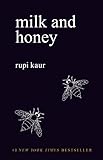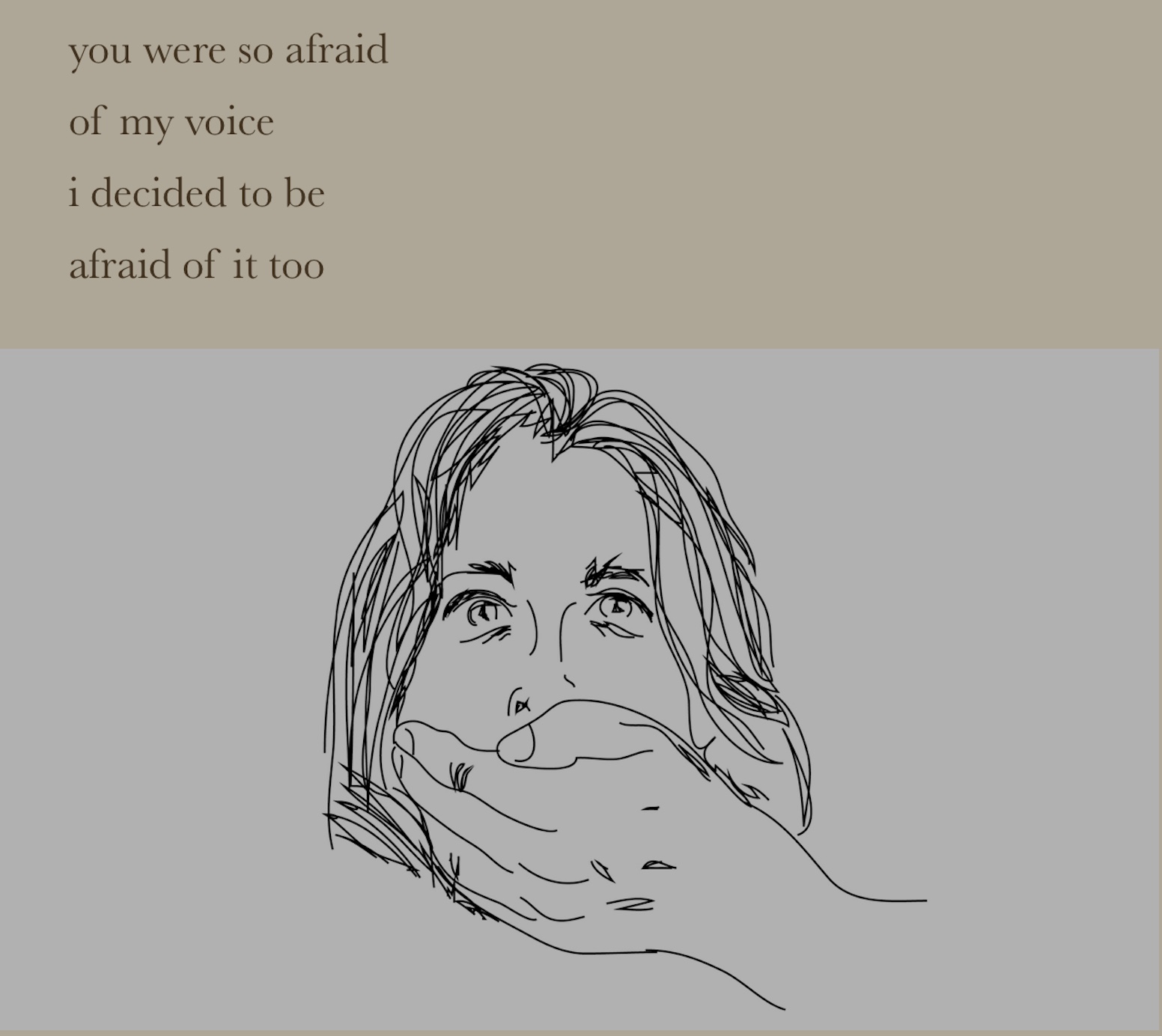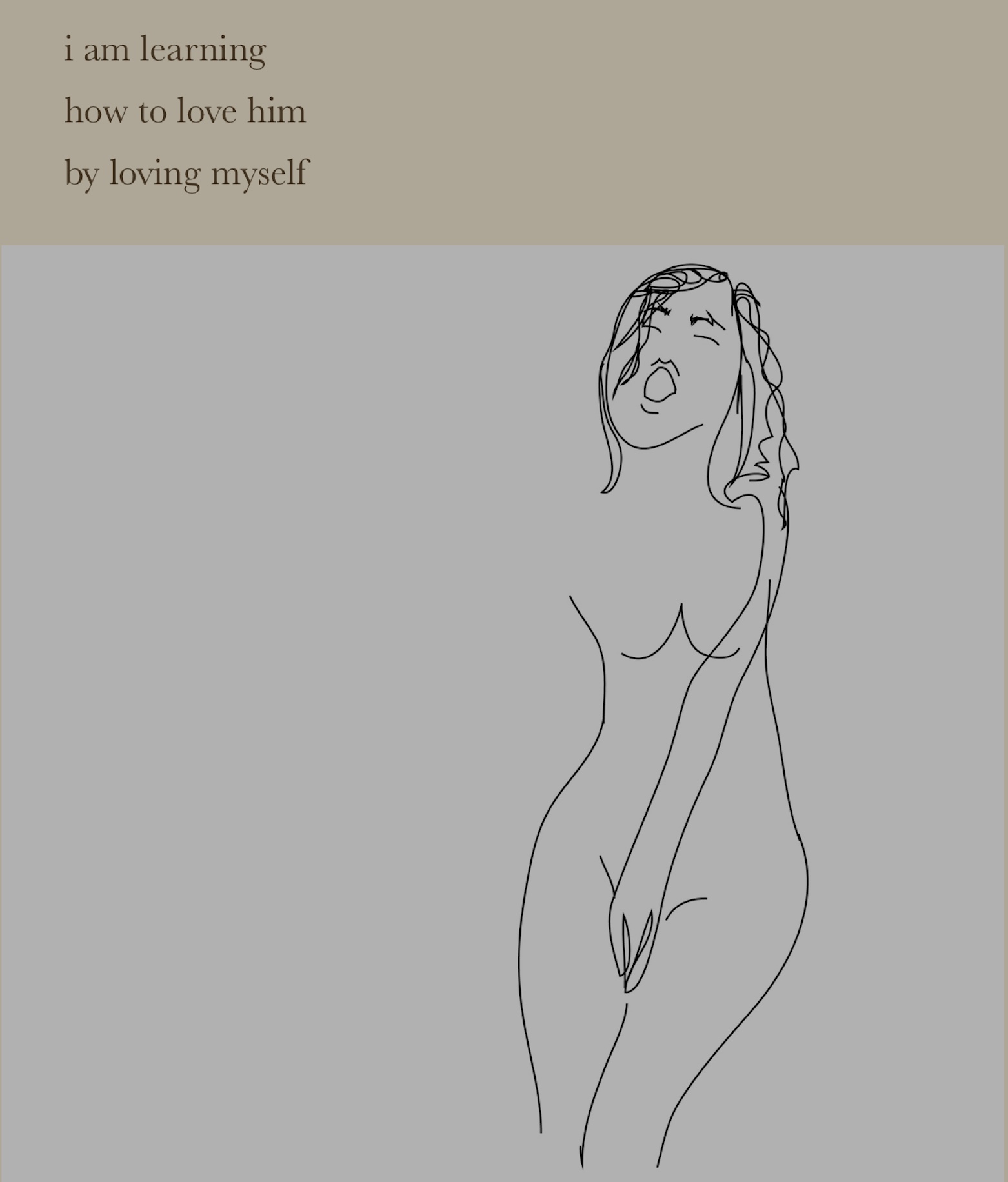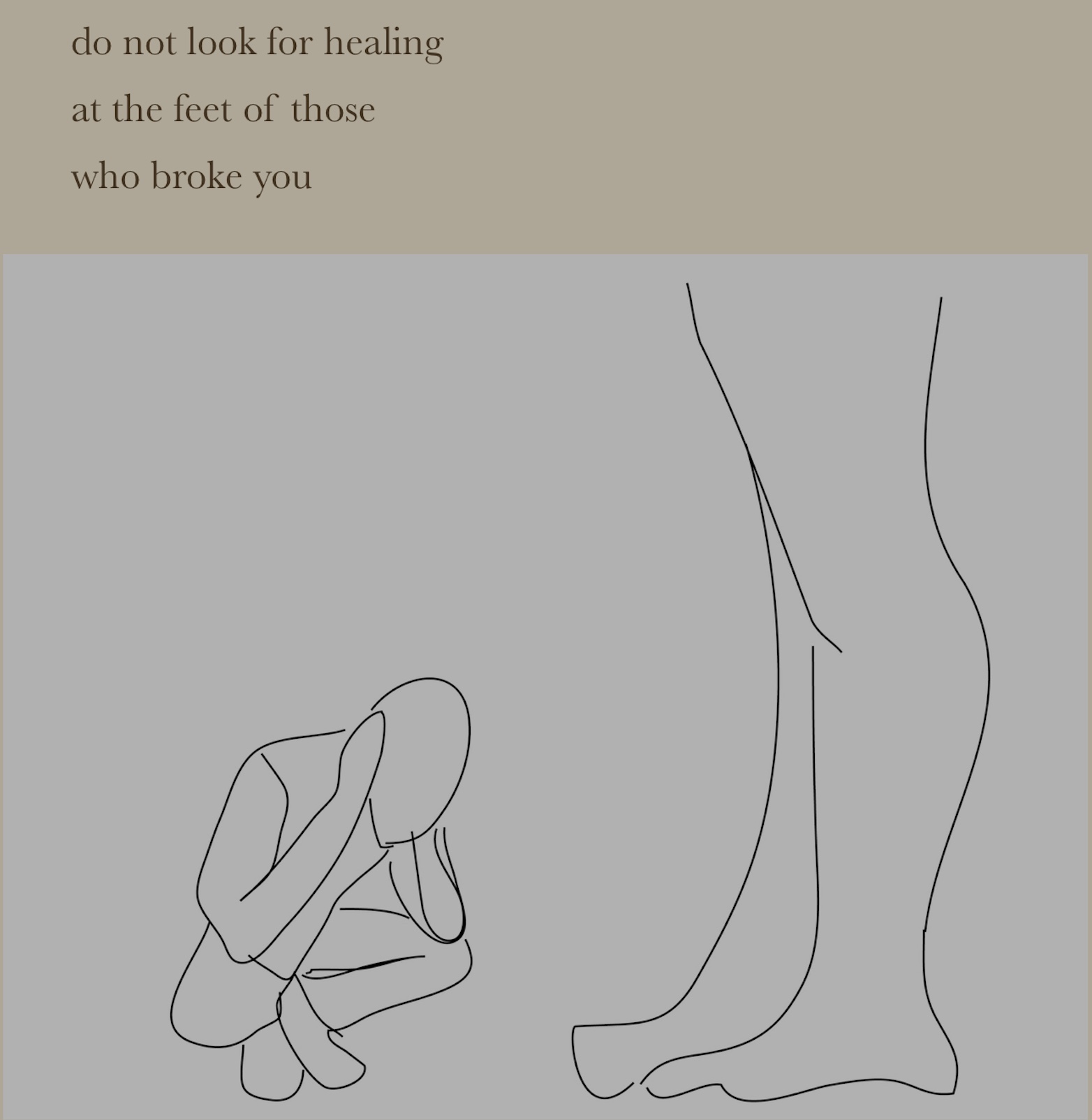“Don’t just read the thing that you think is for you…
read the thing that’s not.”
— Lisa Lucas
In a bleak year, I found a book that brings me hope. milk and honey is a collection of illustrated poems that was first self-published in 2014. Author Rupi Kaur, who is 24 years old, has a strong visual aesthetic and is well known for her Instagram images. She draws huge crowds at her appearances. The book is now published by Andrews McMeel and has become a staple on the bestseller lists.
Before I read it, I assumed milk and honey wasn’t for me.
 Maybe I had the idea that popular and poems are two things that shouldn’t go together. I took a cue from my stubborn instance on using capital letters in a book title. It’s also fair to say that my reading preferences often don’t line up with the bestseller lists. What I didn’t take into account was that this book might remind me of my past in a way that could influence my future.
Maybe I had the idea that popular and poems are two things that shouldn’t go together. I took a cue from my stubborn instance on using capital letters in a book title. It’s also fair to say that my reading preferences often don’t line up with the bestseller lists. What I didn’t take into account was that this book might remind me of my past in a way that could influence my future.
Just before I started university in the early-1990s, more than 15 years before Donald Trump bragged about grabbing pussies, there was a campus rape awareness campaign called “no means no.” In response to the campaign, a group of students put up signs in their residence windows mocking it, “no means harder,” and “no means tie me up.” On Dec. 6 of that same year, a gunman entered the École Polytechnique in Montreal. He specifically targeted women and ended up killing 14. His suicide note blamed feminists for ruining his life.
In 1991, the year I arrived at university, for the first time women became the majority (51 percent) of graduates in Canada. The administration had responded to the fear-filled atmosphere by covering the campus in educational posters. Many of them gave advice to women about how to avoid sexual assault and wider dangers, don’t walk alone, don’t drink too much, be careful of dark corners. I remember the posters presenting safety as something that could be achieved through a combination of advanced strategic planning and the suppression of all bodily urges.
In keeping with the times, avoiding sexual assault or more became a mission that I took seriously. The consequences, after all, were dire. We all knew victims who had suffered twice. Once from the incident and a second time if or when people found out. “She was raped,” the whispers followed a friend like a dark shadow. If someone asked why, the answer lay in her failure to preform defensive maneuvers. Fault wasn’t assigned. It was an assumption.
Of course I didn’t manage to avoid all trouble. Few of us did, but we didn’t talk about it much either. A large part of our tactical maneuvering was about keeping quiet so that we didn’t suffer twice. I didn’t see this as a political decision at the time, though it was. Back then I saw it as surviving intact.
I soon entered the man’s world of work and part of my job became using my smarts to figure out how to wedge my ill-shaped body into offices that were never designed to fit. Shoulder pads were the least of my problems. I tucked my boobs into a blazer and dodged, ducked, and dove when trouble found me. It sometimes did.
Now that I’m older and the politics have evolved, I speak out, but I’m aware that I’ve left behind a big steaming pile of crap — in my case that’s a handful of men who might expect women like me to dodge, duck, and dive around them, regardless of how they behave. Some of these men have probably shifted their gaze to a younger generation. I feel sick that my silence might lead to more harm.
Many of these memories came back as I read milk and honey. Kaur writes around the subjects of sex and power with an honesty and candor that made it all feel fresh. Not all that much has changed and so much in her book feels familiar, however there is a profound difference in how she frames her story.
These are poems I wish for my younger self to read. The arc, told over four parts — the hurting, the loving, the breaking, the healing — is different to the world I knew, especially the healing part. It is not a story about fitting into someone else’s world, but about how to imagine your own.
What I internalized, Kaur dissects:
What I repressed, she releases:
What I kept quiet, she calls out:
Raur is like many people in the generation younger than I am. They are not dodging, ducking, or diving. Despite a climate full of fear, they are speaking up. They are calling out the behavior that I did not. Their willingness to do this is bringing change — it’s also the brave heart of the many allegations of sexual assault or inappropriate conduct that have been brought forward on so many university campuses in the past few years. It is painful to admit that my silence has helped to create such chaos.
I came of age in a world where education and work meant fitting into a someone else’s world. I managed to find a way into a room of my own. But while experience can bring wisdom, those same experiences can calcify and create a rigid view. Sometimes it takes a new perspective to flush out our thinking.
milk and honey stands out in my year of reading because it reminds me why listening is so important, especially as I grow older. Rupi Kaur’s book shows how a younger generation is doing more. They are shaping a world of their own.
More from A Year in Reading 2016
Don’t miss: A Year in Reading 2015, 2014, 2013, 2012, 2011, 2010, 2009, 2008, 2007, 2006, 2005













